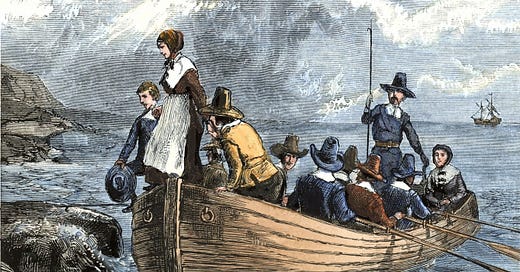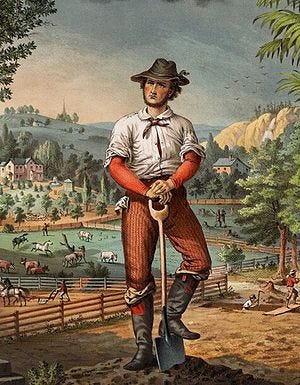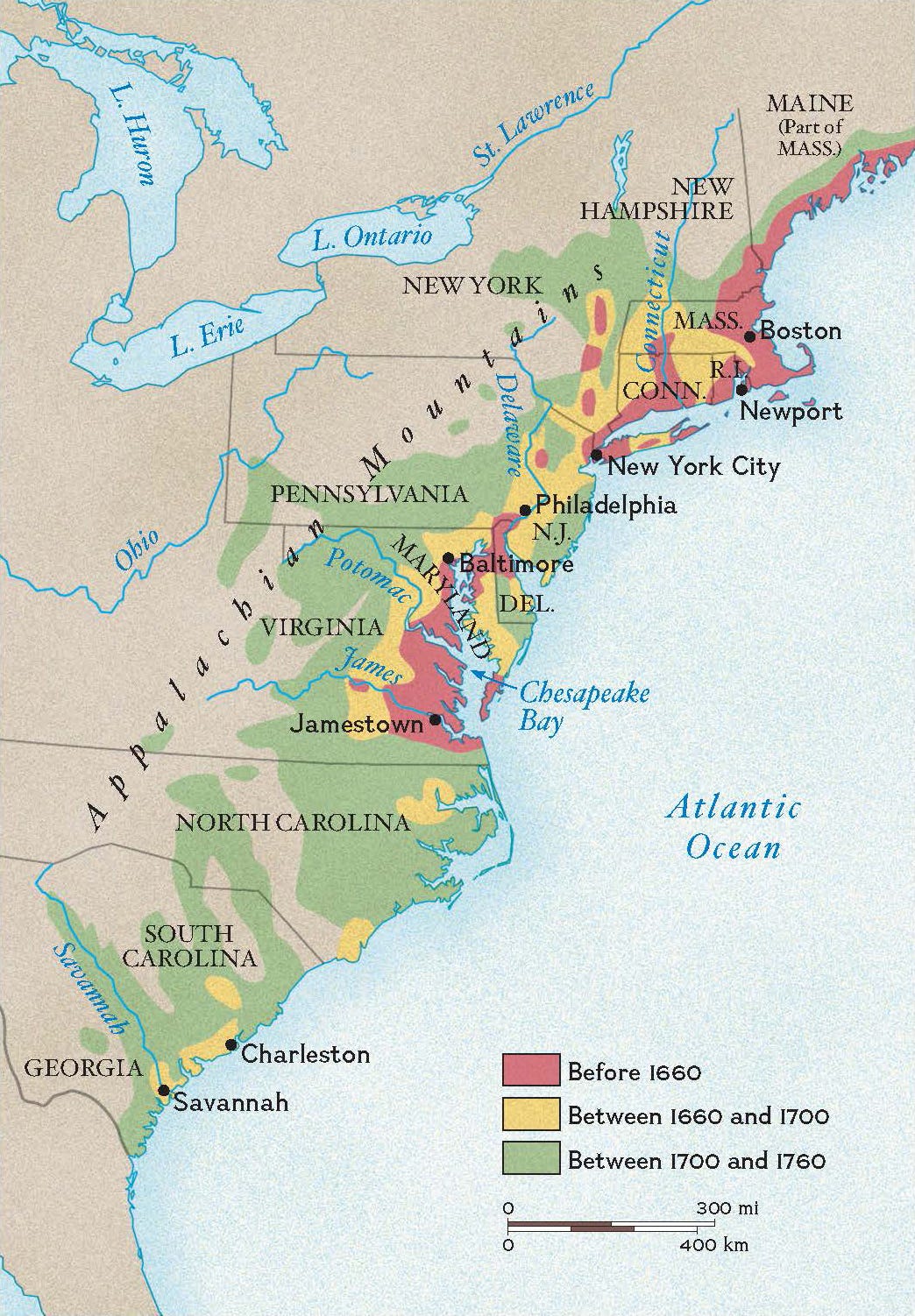As James Belich argued in his book Replenishing the Earth, an important historical breakthrough that spread material progress to new regions was the migration of Europeans to much of the rest of the world. Belich called the process “explosive colonization” to differentiate the migration and subsequent demographic expansion from all previous migrations. Of particular importance was the migration of British settlers to colonial North America (the modern-day United States and Canada), Australia, and New Zealand.
For those who are interested in this topic, I would highly recommend Belich’s book. Here is a summary of Belich’s excellent book in my library of online book summaries.
The following is an excerpt from my first book that expands on Belich’s argument and connects it to five other major breakthroughs that spread material progress throughout the globe:
The emergence of Commercial societies in Europe about 800 years ago that innovated four of the Five Keys to Progress (productive agriculture, trade-based cities, decentralized power, and export industries).
The diffusion of Commercial societies from Northern Italy to Flanders and then to the Netherlands and finally to Southeast England.
The migration of Europeans to much of the rest of the world. The migration of peoples from Britain to North America was particularly important.
The Industrial Revolution in Britain, which added the fifth Key to Progress (widespread use of fossil fuels). The Industrial Revolution involved the application of fossil fuels to transportation, communication, materials, agriculture and other technologies, increasing their usefulness. This dramatically increased the rate of innovation to a level where real progress could take place in Western Europe and North America.
The Allied victory in World War II, which ended the totalitarian threats of Nazi Germany, Imperial Japan and Fascist Italy. Once the economies of Western Europe and Japan recovered from the devastation of the war, they grew at an unprecedented rate for almost 30 years.
The collapse of the Soviet Union in the early 1990s, which ended the last of the great predatory empires and undermined the legitimacy of centralized political monopolies. As a result, country after country dismantled totalitarian and authoritarian regimes in favor of increased freedom, democracy, market-based competition, and global trade.
Most of the following is an excerpt from my book From Poverty to Progress: Understanding Humanity’s Greatest Achievement. You can purchase discounted copies of my book at my website, or pay full prize at Amazon.
If you are interested in this topic, you should read my “From Poverty to Progress” book series:
This article is one article in my multi-part series on How progress spread across the globe:
How Progress Spread Across the Globe (podcast)
How European settlers spread progress (this article)
How the Industrial Revolution upset the military balance of power
How Progress shaped the Great Power conflicts of the 20th Century
European Settlers
European settlers brought their genes, technologies, skills, social organizations, and values with them. The result was often a dramatic jump in per capita GDP in local regions. This jump rarely benefitted the indigenous people, at least in the short run, but it did lay the foundation for widespread progress outside Europe.
Particularly important was the mass immigration of the British to North America. Remember that North America had almost all the geographical preconditions for building complex Agrarian societies. The main constraint was a lack of domesticated animals capable of pulling plows.
Because many of the early British immigrants came from complex societies, the settlers brought domesticated animals with them. They also brought an entire suite of complex technologies, skills, and social organizations. Just as importantly, they did not bring the centralized extractive institutions from their home countries.
When settlers arrived in a relatively unpopulated region, they tended to recreate the societies that they had left and to adapt to the local environment. It could not be otherwise.
Settlers had grown up in societies with a unique suite of technologies, skills, social organizations, and values. They could not reinvent themselves as people just because they were living in a new land. Their survival and reproduction were at stake. The difficulties of the initial settlement forced them to fall back on what they already knew.
Settlers from the largest Agrarian societies of Western Europe – Spain, France, and Portugal – tended to recreate similar societies in the New World. They all left hierarchical agricultural societies that highly valued status, military glory, conspicuous consumption, and avoidance of physical work. It was only natural that the conquerors would want to set up similar societies in the New World, but with themselves at the top of the pyramid.
If similar people had settled all of North America, it too would have been sculpted into similar societies with all the disadvantages of Agrarian societies. Fortunately for humanity, a very different type of people settled in what became the Northeastern United States. Settlers in this area largely came from Commercial and Free Peasant societies.
The establishment of rapidly growing Commercial and Free Peasant societies in North America by European settlers sowed the seeds for a fundamental shift in global power. As the United States grew in population and geographical extent, industrialized, and finally built a world-class military, the balance of world power between Agrarian societies and Commercial societies fundamentally shifted.
No longer were free societies a small collection of city-states huddling on the fringes of Europe. Now they were continental in scope. This development played a fundamental role in shaping the history of the 20th Century.
In future posts, I will go into much more detail on how geography and the characteristics of settlers played a major role in spreading progress to North America and other European settler colonies.
The above is an excerpt from my book From Poverty to Progress: Understanding Humanity’s Greatest Achievement. You can purchase discounted copies of my book at my website, or pay full prize at Amazon.
If you are interested in this topic, you should read my “From Poverty to Progress” book series:
This article is one article in my multi-part series on How progress spread across the globe:
How Progress Spread Across the Globe (podcast)
How European settlers spread progress (this article)
How the Industrial Revolution upset the military balance of power
How Progress shaped the Great Power conflicts of the 20th Century












End of Predatory Empires!!!. Was he serious. IMF, World Bank, the UN, NGOs backed by City of London and Wall St, The French in Africa.
The price of progress is/was colonial enslavement directly or with the Debt Diplomacy of today.
I loved the contemporary art you used, tried to order a Kindle edition from Amazon, but looks like Amazon USA only.